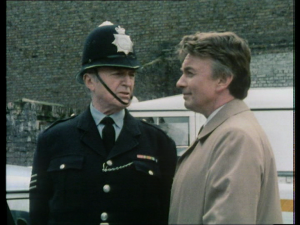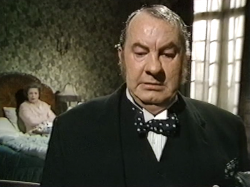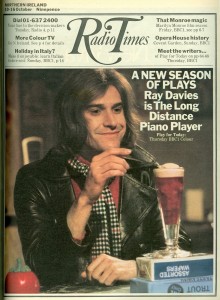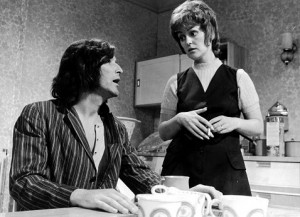DAVID ROLINSON
The opinion that Dixon of Dock Green (BBC, 1955-76) was a cosy anachronism throughout its existence, and in particular in the 1970s, remains pervasive. Lez Cooke’s excellent study of British television drama fairly summarises the common view that Dixon “gained a reputation as a ‘cosy’ representation of the police and their relationship with the public in the mid-late 1950s”, a representation which was “superseded” in the 1960s and 1970s “by more hard-hitting and up-to-date representations of both the police and the criminal underworld”.1 Dylan Cave goes further in Ealing Revisited, arguing that Dixon‘s long run “wasn’t due to innovation, but to its dogged refusal to acknowledge the pace of a changing Britain, as depicted in the far tougher police series Z Cars and The Sweeney. It was cherished as a reassuring reminder of apparently simpler, gentler times”.2 There is room to question the pervasive generalisation that 1970s Dixon was a cosy anachronism that was smashed up by the arrival of The Sweeney (ITV, 1974-78). As I’ve argued in my previous writing on police drama,3 this generalisation needs to be put under more scrutiny, either by putting The Sweeney in the context of the detailed study of other police and action series of the period (Cooke wisely uses the plural “representations”), or looking into the apparent anomaly that Dixon survived – indeed, was still hugely successful – well into the 1970s. Dixon makes its own use of the changing language of police drama – with its “shooters”, “birds” and “blags” and the prioritisation of the CID while former beat copper Dixon takes a back seat – and reflects the changing practices of, and attitudes towards, the police. Acorn Media’s welcome DVD release of six colour episodes gives me a chance to look more closely at 1970s Dixon to add this article as a supplement to this much longer and more detailed piece on Dixon’s place in the history of police drama.
Continue reading “Dixon of Dock Green in the 1970s”
Lez Cooke, British Television Drama: A History (London: British Film Institute, 2003), p. 49. ↩
Dylan Cave, ‘The Legacy of Ealing’, in Mark Duguid, Lee Freeman, Keith M. Johnston and Melanie Williams (editors), Ealing Revisited (London: British Film Institute/Palgrave Macmillan, 2012), p. 222. The directness of this statement is slightly surprising since Ealing Revisited is derived from a 2006 conference of the same name at which I presented a paper which problematised this opinion. An extended version of that paper, on Dixon‘s revisiting of Ealing’s The Blue Lamp and its own revisiting by The Black and Blue Lamp, is available on this site, with a link elsewhere on this page. ↩
David Rolinson, ‘From The Blue Lamp to The Black and Blue Lamp: the police in TV drama’. Posted on this site in February 2011, but drawing from previous talks and publications since 2002. ↩





